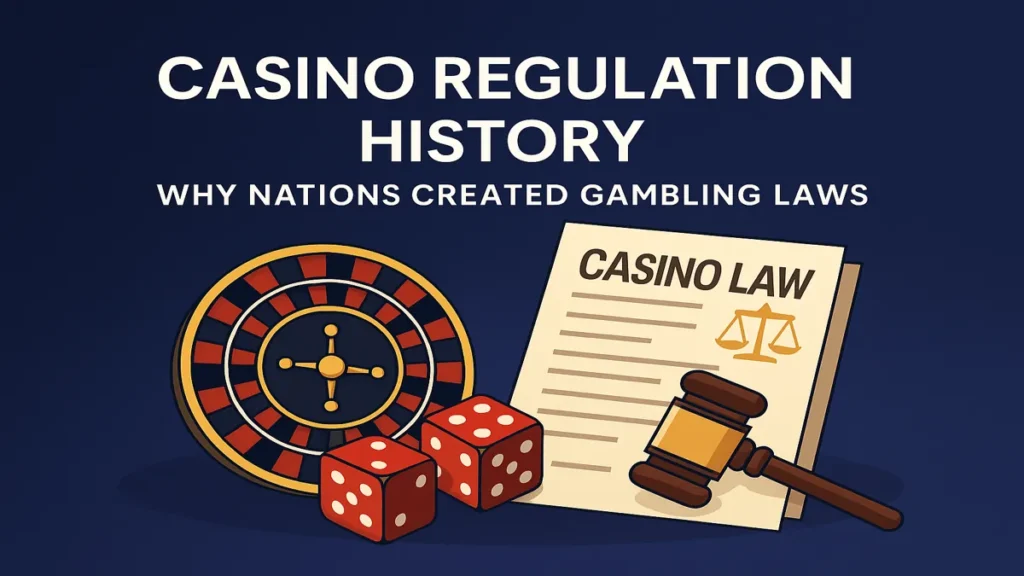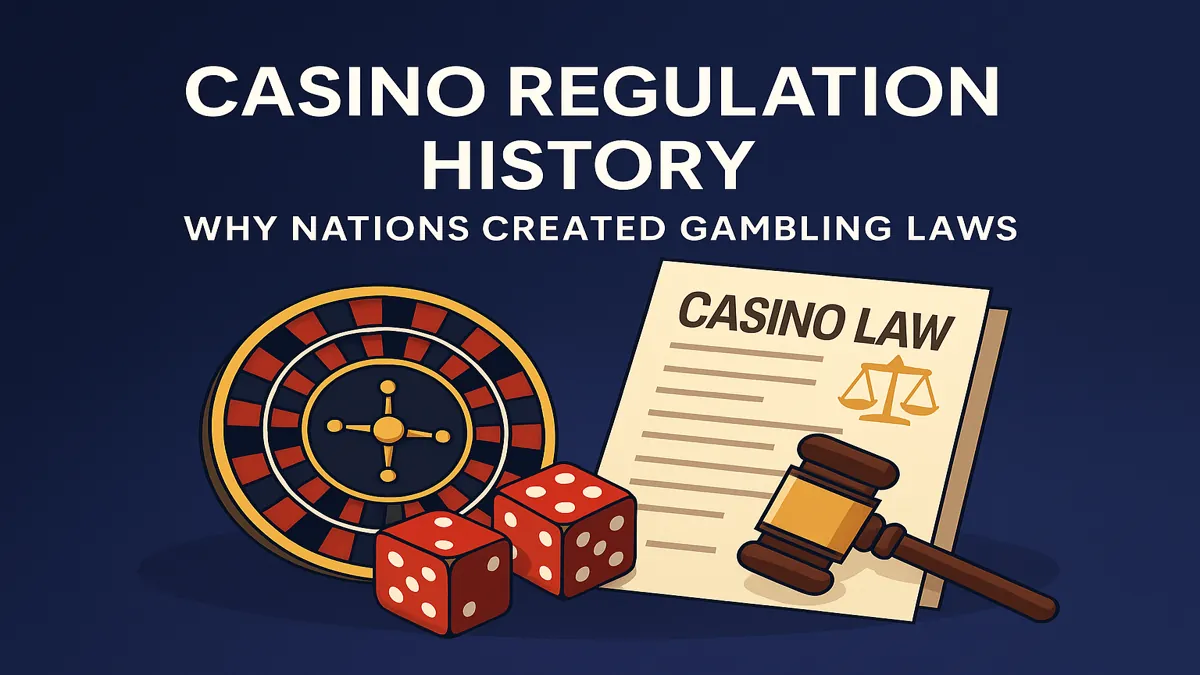The casino regulation history of many nations is shaped by religion, politics, and economics. From outright bans to carefully controlled state-run operations, countries have adopted unique approaches based on their historical contexts. This article explores why some governments decided to regulate or prohibit casinos.

Moral and Religious Objections to Gambling
Faith-Based Resistance
In many nations with strong religious roots, especially Islamic countries like Saudi Arabia and Iran, gambling is strictly forbidden. These laws stem from Islamic principles that consider gambling (“maisir”) unjust and morally dangerous, contributing to societal harm.
Public Morality Campaigns
In 19th and early 20th century Europe and the United States, reformers led public morality movements to ban gambling. These efforts were grounded in the belief that gambling destroyed families, encouraged vice, and distracted citizens from productive lives.
Political and Social Stability Concerns
Curbing Crime and Corruption
One major driver of casino regulation was the need to combat organized crime. In countries such as Italy and the United States, unregulated casinos were often linked to money laundering, bribery, and criminal enterprises. Regulation helped break these connections.
Protecting Public Welfare
Scandinavian nations like Norway and Finland introduced tight government control over gambling, limiting private operations. They aimed to prevent addiction and use profits to fund health care and education.
Economic and Strategic Policy Goals
Raising National Revenue
Some governments, especially those seeking tourism growth or dealing with budget deficits, legalized casinos to increase revenue. Singapore is a prominent example, allowing two integrated resort casinos while imposing access restrictions for locals.
Avoiding Illegal Markets
Countries like the United Kingdom opted for full regulation instead of prohibition. This allowed them to maintain control, generate tax income, and reduce the influence of underground gambling rings.
Why Casino Laws Differ Around the World
The casino regulation history of each country reveals a unique balance of social values and practical needs. Whether seeking to limit harm or generate income, states continue to adapt their laws to cultural and political realities.
